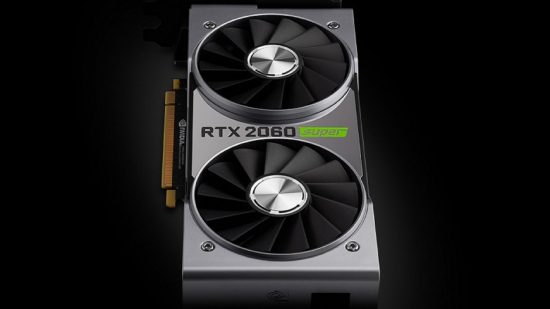Did they get you? The release of the Nvidia GeForce RTX 2060 SUPER happened barely six months after the launch of the original 2060. It’s not quite a generational upgrade, but a lot of folks will be feeling like they stepped on a rake with that one. I nearly stepped on it myself – was on the fence about buying a 2060. I figured I’d wait and see – I dodged a bullet, but it was mainly down to luck.
Computers as a hobby have always had a slightly complicated, messy, quality to them. Buying decisions demand research, planning, a little bit of horse trading and a little bit of a gamble. There are calculations within calculations when upgrading or starting a build. How long will this component stay ahead of the curve? Is there something coming down the line that will be cheaper and faster? Can I get away with cutting a corner here? Do I really need one of these? Can I upgrade just this bit, or will my PC need a full rebuild?
A shrewd, informed, buyer gets stung less often, but the history of the hobby is littered with cautionary tales. If anything, we now enjoy a time where we coalescence around fewer manufacturers and fewer systems, making it less risky.
When home computing was new, we lived with a hodgepodge of systems. There were many different makes of computers, each with their own operating system, specialisations, limitations and software ranges. It was fun while the hobby was in its infancy, but these days it can be hard enough to get a reliable port of a console game. I can’t say I’d relish the idea of waiting for every different computer manufacturer to get its own individual version*.
As PC gaming became more formally based around Windows systems, we had new considerations, such as the first 3d accelerators. The arms race around these cards was brutal. Not only did the pace of technology see some contenders falling behind like mascots running a marathon, but it also meant your expensive new dual-board oddity could be an unsupported liability in a matter of months. Then we had issues over which version of Windows to use, and whether we needed a PhysX card. Now we need to focus on whether a few cores going fast is better than a big stack of cores going slow.
The cross platform nature of modern games development has taken some of the urgency out of the pursuit of a fast PC, but any high-performance PC built with current-generation components is a piece of state of the art technology, sometimes going from the R&D department to the factory to our desktops in a matter of months.
Sometimes that means you get burned, and you end up with an expensive, component that’s already out-of-date in a matter of months. Sometimes it means your investment enables you to ride the wave of peak PC gaming for years. This speed of development means we sometimes get caught out, but it’s also what keeps us coming back to see what the next wave of components can do.
*I must confess, I’m now wondering what the Spectrum and Amstrad CPC would look like today if they’d been developing against each other for the last 35 years.
